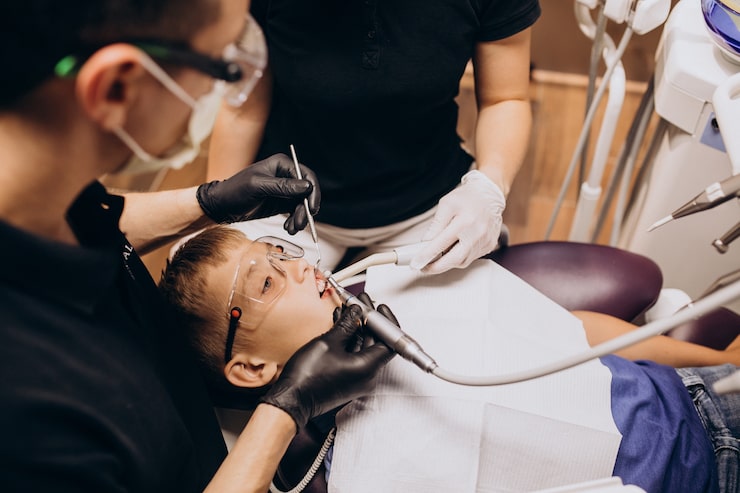Chronic headaches can seriously affect your daily life and productivity. While stress, diet and sleep often play a role, dental health is sometimes overlooked as a cause.
This article looks at the possible link between orthodontic treatment and chronic headaches, and explains how consulting an experienced orthodontist might help.

How orthodontics can ease headaches
Orthodontics is the dental specialty that corrects tooth and jaw alignment. When teeth or jaws are out of alignment, they can cause jaw pain, muscle tension and headaches, including some migraines. Here are ways orthodontic care may reduce chronic headaches:
1. Fixing bite problems
A misaligned bite—when the upper and lower teeth don’t meet properly—can strain the jaw joints and muscles. Over time, that strain can trigger recurring headaches. A qualified orthodontist can assess your bite and suggest treatments such as braces or other appliances to bring your teeth and jaws into better alignment.
– Braces: Traditional metal brackets and wires move teeth into the correct position and correct bite issues, which can reduce headache triggers linked to dental problems.
– Lingual braces: These work like traditional braces but sit behind the teeth, making them less visible while still correcting bite and alignment.
– Functional appliances: These devices guide jaw growth or jaw position and can help lower tension and headaches related to jaw misalignment.
2. Reducing TMJ problems
The temporomandibular joint (TMJ) links the jaw to the skull and is essential for chewing and speaking. Stress on the TMJ from a bad bite or other dental issues can cause jaw pain, headaches and ear pain. Orthodontic treatment can ease pressure on the TMJ and reduce these symptoms.
– Orthognathic surgery: In more serious cases where jaw and facial bone positions cause headaches, corrective jaw surgery may be recommended to realign the upper and lower jaws.
3. Easing muscle tension
When teeth and jaws are not aligned, the facial muscles that control chewing and jaw movement can become overworked. This extra tension can spread and cause headaches. Orthodontic treatment aims to balance the bite and jaw position, which can lower muscle strain and help relieve headaches.
– Palatal expanders: For a narrow upper jaw, an expander widens the palate and can improve jaw alignment, potentially easing headaches linked to jaw issues.
Choosing the right orthodontist
If you’re exploring orthodontic options for headache relief, picking the right orthodontist matters. Look for someone with experience treating bite and jaw-related problems and a patient-focused approach. Ask about their track record with cases that involve headache symptoms.
Conclusion
Orthodontic treatment can be a helpful option for many people with chronic headaches tied to bite alignment, TMJ strain or muscle tension. A skilled orthodontist may be able to reduce or eliminate headache triggers and improve your quality of life.
If you’re ready to explore this route, contact an experienced orthodontic team in London for a consultation.
FAQs
Can orthodontic treatment help with migraines?
Yes—orthodontic care can sometimes help with migraines, especially when dental problems like misaligned teeth, jaw issues or muscle tension are triggers. A consultation with an orthodontist can help determine if treatment is appropriate for your situation.
How much do orthodontic treatments for headache relief cost?
Costs vary depending on how complex the case is, the type of treatment chosen and the clinic’s location. A consultation will provide a personalised plan and an estimate. Also check whether your insurance might cover any of the treatment.
Are there age limits for these orthodontic treatments?
No. People of all ages can benefit from orthodontic care. Treatment plans are tailored for children, teens and adults, though the approach may differ depending on age and oral health.
Can orthodontic treatment make headaches worse?
Most treatments aim to reduce the dental causes of headaches, not worsen them. However, as with any medical or dental procedure, there can be risks or temporary discomfort. Working with an experienced orthodontist helps minimise risks and find the right plan for you.
Are there non-surgical options for headache relief?
Yes. Many cases can be treated without surgery using braces, clear aligners and other orthodontic appliances. Your orthodontist will recommend the best non-surgical option based on your specific needs.